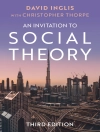This volume aims to revitalize the exchange between sociological differentiation theory and the sociology of religion, which previously held center stage among the sociological classics. It brings together contributions from different disciplines, as well as various forms of regional and historical expertise, which are indispensable in forming a globally oriented sociological perspective today.
Secularization is understood as a process of boundary demarcation, that is, as the enactment of semantic, practical, and institutional distinctions between religion and other spheres of activity and knowledge. These distinctions may emerge from within the religious field itself, or may be absorbed into the field having originally emerged elsewhere. They may even be directly imposed upon religion by external forces. The volume is therefore based on the premise that societal differentiation – and secularity as a specific expression of it – is a widespread structural feature that nonetheless takes on various forms, depending on its historical and cultural context. In order to make this diversity visible, the volume adopts a global comparative perspective, and examines historical distinctions and differentiations in the West and beyond. By examining different forms and modes of secularity in statu nascendi, the volume contributes to developing a better understanding of the diversity of secularities, even of those found in the present day, in terms of their historicity and their specific path dependencies.
With this shift in perspective, this special volume initiates a global and historical turn in the theory of differentiation, as well as in the study of secularity.
Über den Autor
Christoph Kleine; Daniel Witte; Monika Wohlrab-Sahr, all from Leipzig University












